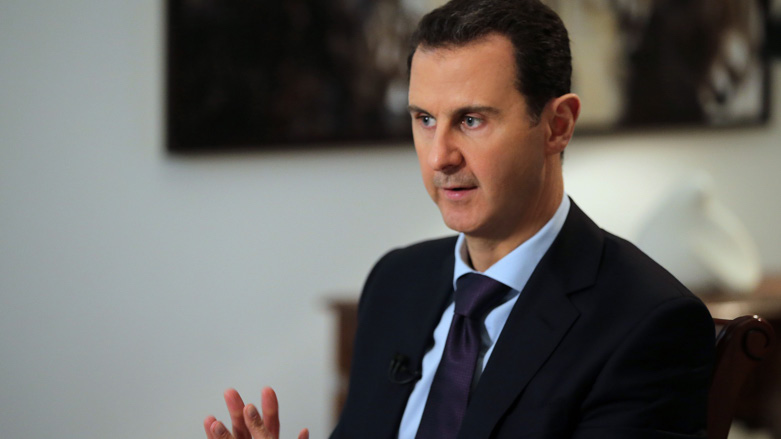President Assad unwilling to improve Syria’s recent dialogue with Turkey: experts

ERBIL (Kurdistan 24) – Experts say that Syria's embattled President Bashar Assad is unwilling to improve Syria’s recent dialogue with Turkey.
President Assad recently told Sky News Arabia that he is not willing to meet Turkish President Recep Tayyip Erdogan.
“A word without preconditions for a meeting means without an agenda, without an agenda means without preparation, without preparation means without results, so why do Erdogan and I meet?!,” he said.
“We want to reach a clear goal. Our goal is the Turkish withdrawal from the Syrian lands, while Erdogan’s goal is to legitimize the presence of the Turkish occupation in Syria. Therefore, the meeting cannot take place under Erdogan’s conditions.”
On July 17, Turkish President Recep Tayyip Erdogan told reporters that he was willing to meet with President Assad, but not willing to withdraw from Syria. “Such a thing cannot happen,” he said.
Read More: Turkey and Syria agree to improve ties after talks in Moscow
Russia has been urging Turkey to mend relations with the Syrian government and has facilitated discussions among high-ranking foreign ministry officials from Turkey, Syria, and Iran.
Throughout Syria's civil war, which has resulted in the loss of thousands of lives, Turkey has consistently supported opposition rebels who have been in conflict with the government in Damascus.
Furthermore, Turkey has taken control of significant portions of northwest and northeast Syria, with the intention of thwarting Kurdish self-governance in the northern region and impeding the progress of the Syrian army.
Damascus has demanded Turkey to end its occupation of Syrian territories. Also Syrian Kurds have demanded Turkey to leave Syria.
Turkish communications director Fahrettin Altun on July 24 told the Daily Sabah newspaper that Turkey will “continue our engagement process with the regime in a quadrilateral format without preconditions and in good faith.”
“The Syrian regime should act in the same manner for this process to produce an outcome,” he said.
However, he said withdrawal of Turkish troops from Syria at this stage does not make any sense, and that the Turkish military presence in Syria is a guarantee for Syria’s “territorial integrity.”
“Assad seems unwilling to escalate Syria’s recent engagement with Turkey without a solid Turkish commitment to withdraw the latter’s forces from Syria,” Sam Heller, a fellow with the New York-based Century International research center, told Kurdistan 24.
“I think there’s a common misconception that Damascus has insisted on the withdrawal of Turkish forces from Syria before talks proceed. I don’t think that’s the case; rather, Damascus wants the withdrawal of Turkish occupying forces to be a main agenda item in any higher-level Syrian-Turkish talks, with a credible Turkish commitment to withdraw in future,” he added.
“Ankara has so far resisted making that promise, so this year’s nascent rapprochement between Syria and Turkey has reached an impasse.”
“More generally, I think that in Damascus there’s real antipathy and mistrust towards Erdogan, after Turkey supported the Syrian insurgency so actively and latterly occupied large parts of northern Syria. So I don’t think there’s much willingness in Damascus to give Ankara the benefit of the doubt,” he concluded.
Aron Lund, a fellow at Century International and Middle East analyst, agreed that it is difficult for Turkey and Syria to reconcile.
“I think this hardline attitude is partly real and partly a negotiating posture. They are really far apart on key issues, and full reconciliation seems very unlikely, as things stand. That doesn’t mean there can’t be talks and agreements over lesser issues and points of mutual interest,” he said.
Therefore, he said a presidential meeting between president Erdogan and president Assad would be unlikely, despite Russian pressure.
“Such talks seem to be happening behind the scenes, involving intelligence chiefs and others. But a presidential summit would, unless it is to seal a grand bargain, mainly be about the political optics — and that would primarily benefit Erdogan, who is heading into important local elections where the Syrian refugee issue will be a factor. Since Assad wants things Erdogan won’t deliver, I suppose he feels it makes sense to hold firm and wait for better opportunities.”
